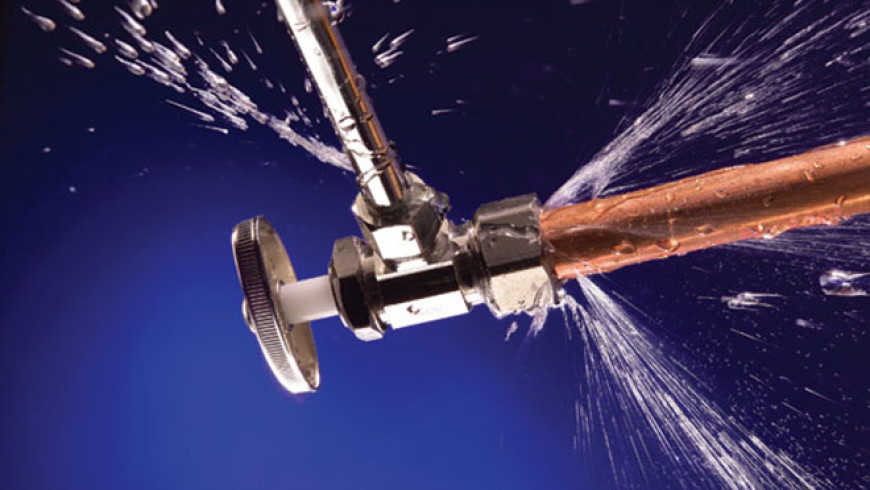Tips for the Six Most Common Causes of Water Leaks in Residential Spaces
Tips for the Six Most Common Causes of Water Leaks in Residential Spaces
Blog Article
This article below in relation to How to detect water leaks in your home is really intriguing. Check it out for yourself and decide what you think of it.

Leaks not only create waste of water yet can likewise cause unneeded damage to your residence and also advertise unwanted natural development. By looking and also comprehending for everyday situations that trigger leaks, you can protect your residence from future leaks and unneeded damage.
Instant temperature level modifications.
Severe temperature level modifications in our pipelines can cause them to broaden and also acquire unexpectedly. This development and tightening might cause fractures in the pipelines, especially if the temperature are listed below freezing.
Rusty water supply
As time passes by, your plumbing system ages as well as corrosion such as corrosion may begin eating away the pipelines. This could be the reason for staining or bending on your water pipes. This asks for an evaluation with your plumber instantly. If our plumbing system is old, consider changing the pipes because they go to a greater risk of corrosion than the newer versions.
Defective Pipeline Joints
The factor at which your pipelines attach is regularly the weakest link in the waterline. Pipe joints can weaken in time, leading to water leaks. The bulk of pipeline joints are not conveniently noticeable. If you have loud pipes that make ticking or banging noises, especially when the hot water is turned on, your pipe joints are possibly under a great deal of stress. It is advisable to have your plumber inspect your system once a year.
Elbowing in origins
The majority of water leakages start outside your home rather than inside it. If you notice an abrupt decline in water stress, claim in your tap, take some time to go out and also analyze your lawn. You may notice wet spots or sinkholes in your lawn, and that could suggest that tree origins are invading water lines causing water to seep out. You can have your plumber look for breach, particularly if you have trees or shrubs near your residential or commercial property.
Poor Water Connectors
At times, a leak can be created by loose pipes as well as pipelines that supply your devices. In case of a water links leakage, you may see water running straight from the supply line or pools around your home appliances.
Obstructed Drains
Clogged drains pipes could be frustrating and inconveniencing, yet they can sometimes wind up creating an overflow resulting in break pipelines. Keep eliminating any products that might go down your drains that can clog them to avoid such troubles.
All the above are root causes of leakages but not all water leaks arise from plumbing leakages; some leaks might come from roofing system leakages. All leakages need to be repaired right away to stay clear of water damages.
Leaks not only create waste of water yet can also trigger unneeded damages to your residence and also promote undesirable natural growth. By looking and understanding for daily scenarios that create leaks, you can secure your residence from future leakages and unneeded damages. Today, we will look at 6 leakage causes that might be triggering your pipelines to trickle.
At times, a leak can be created by loose hoses and pipes that supply your home appliances. In case of a water connections leak, you may notice water running directly from the supply line or puddles around your appliances.
How To Check For Water Leak In Your Home
How To Check for Leaks
The average household's leaks can account for nearly 10,000 gallons of water wasted every year and ten percent of homes have leaks that waste 90 gallons or more per day. Common types of leaks found in the home are worn toilet flappers, dripping faucets, and other leaking valves. These types of leaks are often easy to fix, requiring only a few tools and hardware that can pay for themselves in water savings. Fixing easily corrected household water leaks can save homeowners about 10 percent on their water bills.
To check for leaks in your home, you first need to determine whether you're wasting water and then identify the source of the leak. Here are some tips for finding leaks:
Take a look at your water usage during a colder month, such as January or February. If a family of four exceeds 12,000 gallons per month, there are serious leaks.
Check your water meter before and after a two-hour period when no water is being used. If the meter changes at all, you probably have a leak.
Identify toilet leaks by placing a drop of food coloring in the toilet tank. If any color shows up in the bowl after 10 minutes, you have a leak. (Be sure to flush immediately after the experiment to avoid staining the tank.)
Examine faucet gaskets and pipe fittings for any water on the outside of the pipe to check for surface leaks.
Undetected water leaks can happen without the home or business owner even realizing. If you suspect a water leak, but not able to find the source. It is time to contact a professional water leak detection service, The Leak Doctor.
How To Find a Water Leak In Your Home
https://www.leakdoctor.com/blog/How-To-Check-For-Water-Leak-In-Your-Home_AE197.html

I found that blog post about Most Common Causes of Leaky Pipes while exploring the search engines. Appreciated our blog? Please share it. Help somebody else discover it. We enjoy reading our article about Common Water Leaks In House.
Schedule Now! Report this page